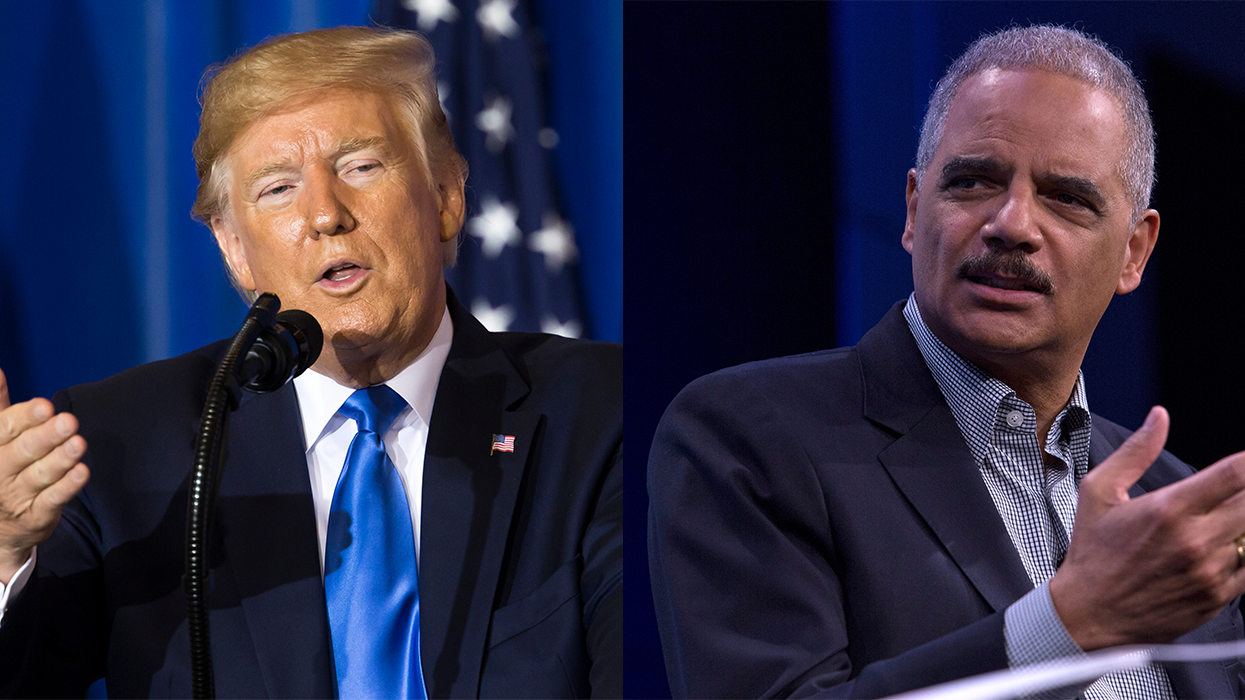Opdycke is president of Open Primaries, which advocates for nonpartisan primaries open to all voters.
End Citizens United, a political action committee, is urging Democratic presidential contenders to champion anti-corruption to defeat President Trump. Tom Steyer's entry into the racemay help bolster this argument. His launch video stresses the importance of addressing voter frustration with big party and big money control: "Really what we are trying to do is make democracy work by pushing power down to the people."
"It's key to winning back independents, the kind of independents that Democrats have lost over the last couple cycles," Adam Bozzi, vice president for communications at End Citizens United, told Politico."It's a jump ball: Voters don't know who to trust, whether it's Trump or a Democrat, on this issue."
There are reasons that voters — most especially independents — don't know who to trust to "drain the swamp."
The biggest lack of trust is that politicians, including those who speak out on reform, are consistently silent on the corruption within their own parties.
Take HR 1, the omnibus bill passed by the new Democratic-led House earlier this year. The bill contains many positive measures designed to increase voter access. It's more notable for what it doesn't contain, namely anything that might broaden the electorate and increase the access and influence of non-Democrats.
An astonishing 26 million independent voters will be barred from casting a ballot in the 2020 presidential primaries. In crucial states like Florida, Pennsylvania, Arizona and New York, the Democratic Party has been largely silent on the exclusion of millions of independents from taxpayer-funded elections, even as they demand campaign finance reform and champion changes to make it easier for Democrats to cast ballots.
Not a single Democrat said, "Hey, people won't believe us if the only reforms we push are those that will benefit our voters!" It's easy to see why independents don't know who to trust.
The Republicans are no better. Trump campaigned on draining the swamp. That promise has been reduced to attacking economic and environmental regulations, not advocating for voter empowerment or ending party control of government. The "swamp" has been redefined, not drained. GOP legislators are undermining voter-enacted reforms in Missouri, Florida and Michigan, and Trump's team is plotting how to limit voter involvement in the buildup to 2020. Numerous state GOP organizations are planning to cancel their presidential primaries altogether.
It's positive that End Citizens United is educating Democratic contenders about how attuned independent voters are to issues of process, democracy and reform. Other Democratic leaders, like Jane Kleeb, the chairwoman of the party in Nebraska, and Aaron McKinney of the Miami-Dade County, advocate for letting independent voters participate in the 2020 presidential primaries. But the dominant approach is to push reform from a partisan perspective.
Former Attorney General Eric Holder is a case in point. He is spearheading Democratic efforts to combat gerrymandering. But he is not really advocating for an end to gerrymandering, just Republican "extreme-gerrymandering." He's not fighting to end the party control of mapmaking — he wants Democrats to have a bigger cut of the gerrymandering pie. This approach raises suspicions among independents, as well as Democrats and Republicans eager to create a less partisan political framework.
The End Citizens United team is right. A strong "unrig the system" stance will be key to inspiring independents in 2020. These voters are growing in number (now over 42 percent), they want to reform politics and government, and they've been swinging between Democratic and Republican candidates to affect change for many cycles now. Elizabeth Warren, Pete Buttigieg, Bernie Sanders, et al. would be wise to listen.
But championing campaign finance reform is only part of the picture. Open primaries, nonpartisan redistricting, nonpartisan election administration, presidential debates open to qualified independent candidates — these are reforms designed to benefit all Americans, not simply the organized Democratic base. The candidate (or candidates) who champion a truly American approach to political change and a redistribution of power has a chance of inspiring independents. And earning their trust.




















